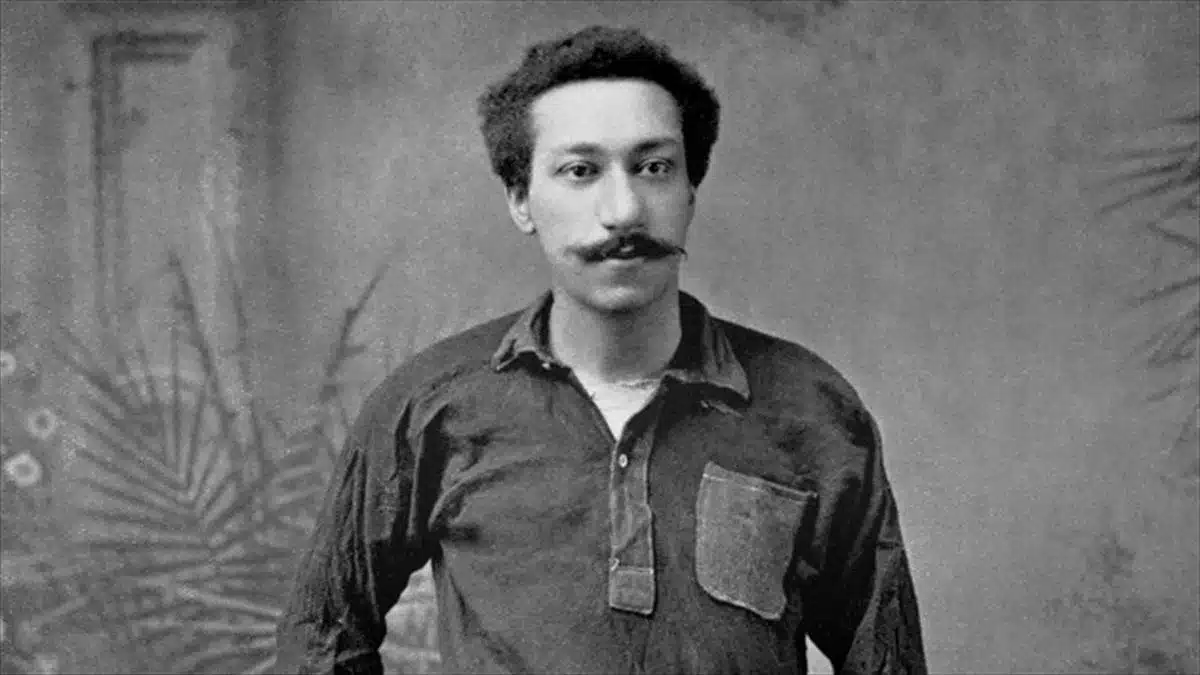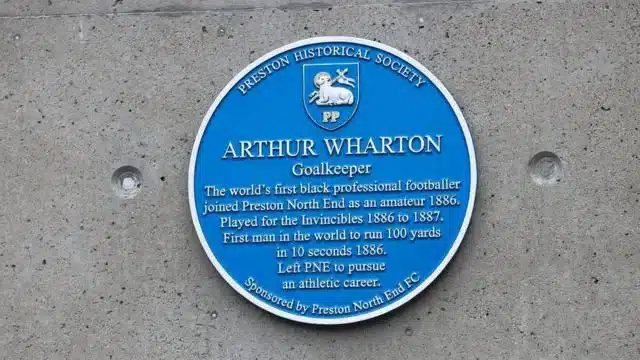
Source: Eurosport
Arthur Wharton, the man often referred to as the first black footballer, has been commemorated with a posthumous plaque. Recently, the plaque was unveiled at the home of one of his former clubs, Preston North End. An amazing tribute to one of the revolutionaries of the beautiful game.
Wharton Honoured in Death

Source: BBC
Wharton’s descendants unveiled a plaque in his honor on Friday, March 29. This was done with the Preston North End Football Club, the Preston Historical Society, and education trust. It was done at Preston’s home stadium Deepdale before its match against Rotherham United. A fitting event, as Wharton played for both teams in his lifetime.
Poetically, Preston won the match comfortably by three goals to nil. But it was the event before then that was the star of the show. What’s more? There was a special ticketed presentation in the ‘Greats’ Room’ by Shaun Campbell of the Arthur Wharton Foundation. During the program, there was a presentation where Campbell spoke about the legacy of Arthur Wharton and his Foundation.
Although Arthur starred for Preston for just two years (1886-1888), he was a pivotal player. A part of “The Invincibles” of the 1880s, he was among the team that reached the FA Cup semi-finals in the 1886/87 season. He was a fan favorite, and unsurprisingly his plaque reflected it.
“Arthur the man, a player popular with the crowd; Deepdale the place, home to Preston North End since 1878; Arthur from Ghana, the first black professional footballer,” it read.
While Wharton is best remembered as the first black footballer in the world and the United Kingdom, there were, in fact, others before him. Robert Walker, of Queen’s Park, and Scottish international, Andrew Watson come to mind. However, neither of the two players played professionally. Wharton, on the other hand, played in the Football League.
A Life Well Spent
Wharton (1865 – 1930) was born in the Gold Coast (now called Ghana) to a Grenadian father and a Ghanaian mother. He moved to England at the tender age of 19 to initially train as a Methodist missionary. Eventually, he changed his mind and pursued a career in sports. He played for nine teams as a trailblazing footballer over a career that spanned 17 years. They include Darlington Football Club, Preston North End, Rotherham Town, Sheffield United, Stockport County, Stalybridge Rovers, and Ashton North End.
More than just a footballer, Wharton epitomized distinction and diversity in sports. In 1886, he equaled the amateur world record of 10 seconds for the 100-yard sprint in the AAA championship. He was also an enthusiastic cyclist cricketer, turning out for local teams in Yorkshire and Lancashire. While playing football, he was predominantly a goalkeeper, but he occasionally featured outfield as a winger.
Over time, Wharton developed a drinking problem. He retired from football in 1902 and began working as a haulage worker. When World War I came some 12 years later, Wharton joined the Volunteer Training Corps for Britain.
Eventually, he died in 1930 but was buried in an unmarked pauper’s grave. It took almost half a century for the travesty to be overturned. In 1997, Arthur Wharton’s grave was given a headstone after a campaign by anti-racism activists Football Unites, Racism Divides. Wharton lived a full life and finally has been commemorated, even in death. One of the true historical football figures.
Writer: Bolu Ibosiola

















